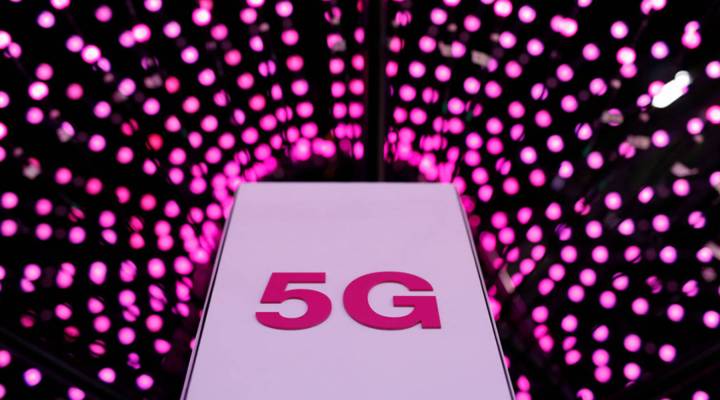
A big auction is the latest in America’s race to 5G
A big auction is the latest in America’s race to 5G

If you’re shopping for holiday tech, you’ll probably see a bunch of devices being marketed as 5G ready. 5G is the next generation of super fast internet, but it needs infrastructure — more bandwidth for streaming videos, games and connecting the ever-growing Internet of Things. The Federal Communications Commission (FCC) is trying to open up that bandwidth by auctioning off little-used parts of publicly owned airwaves, portions that may not have been useful for 3G or 4G, but are now in high demand. To find out why, Marketplace’s Kimberly Adams talks with FCC Commissioner Jessica Rosenworcel. The following is an edited transcript of their conversation.
Jessica Rosenworcel: What’s really cool about these airwaves and this spectrum is it’s high-band spectrum. And that means it has a lot of capacity for broadband, though that capacity is limited because the propagation characteristics of this spectrum are not that great. And what that means is that we can pump lots of video and lots of activity over it, it’s just the signal won’t carry very far. But that’s a new mix of technologies that we’re exploring with 5G, and I’m excited to see it in market and at use.
Kimberly Adams: In any kind of transition to a new technology, there are winners and losers. As you’re watching the results of this auction come in, are you seeing who’s coming out on top, and who may be losing out?
Rosenworcel: We don’t have the results all in yet. But one of the things that I think we have to be mindful of is that we can’t just set aside our wireless airwaves for licensed uses sold at auction. We also have to keep some airwaves unlicensed. And most people don’t know what unlicensed airwaves are. They might sound illicit or illegal. But, in fact, those are the airwaves where Wi-Fi takes place. So we all use them every day. They’re kind of a public property in the skies. And we’ve got to make sure that as we push more of our wireless airwaves to market we keep some for unlicensed and Wi-Fi as well.
Adams: Some other countries have already done this. Are we behind where we should be in picking up this technology and rolling it out?
Rosenworcel: I think we’re at risk of falling behind. You know, the United States led in the last generation of wireless technology known as 4G. We have about 5 percent of the world’s population, but there was a point at which we had half the world’s 4G deployment. And what happened with that leadership role is amazing because the applications economy grew up here on our shores. The operating systems for smartphones all came from here. And you know what? Other nations saw that leadership, and they’re chomping at the bit to get ahead of us in this next generation.
Adams: What’s the consequence of that for us?
Rosenworcel: Well, we’ll have to see. We are rounding the bend and now about to hold many more auctions, which is a good thing. But we’re going to be mindful of the fact that other nations watched our leadership in 4G and are quite interested in making sure they’re at the front of the pack for 5G.
There’s a lot happening in the world. Through it all, Marketplace is here for you.
You rely on Marketplace to break down the world’s events and tell you how it affects you in a fact-based, approachable way. We rely on your financial support to keep making that possible.
Your donation today powers the independent journalism that you rely on. For just $5/month, you can help sustain Marketplace so we can keep reporting on the things that matter to you.












